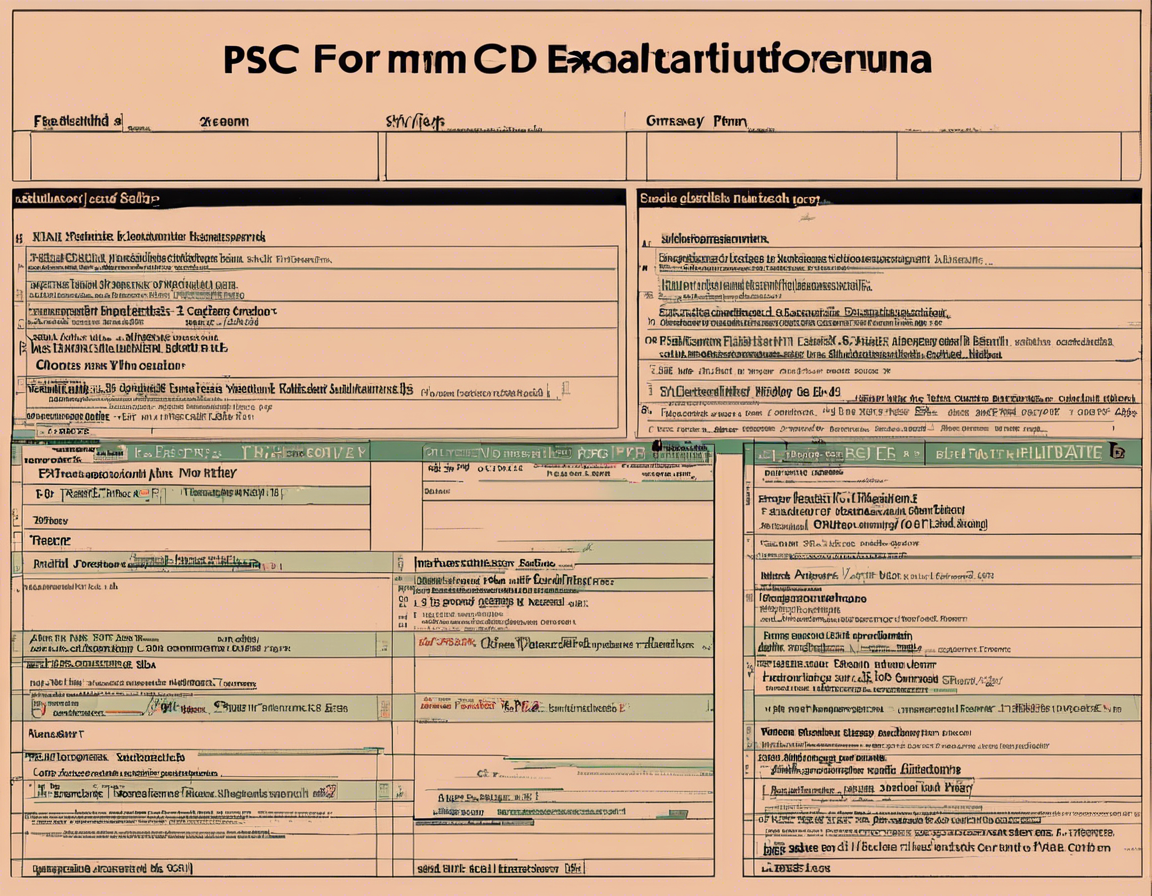In the fast-paced world of abbreviations and acronyms, it can be easy to get lost in a sea of letters and meanings. In the realm of government and politics, one such abbreviation that often crops up is PSC, which stands for Public Service Commission. Public Service Commissions are critical institutions in many countries, responsible for overseeing and conducting recruitment exams and appointments to civil services. In this comprehensive guide, we will delve into the world of Public Service Commissions, explore their functions, and shed light on the significance of PSCs in the realm of governance.
What is a Public Service Commission (PSC)?
A Public Service Commission is an independent government agency responsible for recruiting personnel into the civil services of a state or country. The primary aim of a PSC is to ensure that the recruitment process is fair, transparent, and based on merit. PSCs are tasked with conducting examinations, interviews, and other selection processes to select suitable candidates for various government positions.
Functions of a Public Service Commission
-
Conducting Examinations: One of the key functions of a PSC is to conduct competitive examinations for recruitment to various government positions.
-
Recruitment: PSCs are responsible for recruiting candidates to fill vacancies in government departments based on the results of the examinations conducted.
-
Advisory Role: PSCs also advise the government on matters related to civil services, such as framing recruitment rules, policies, and guidelines.
-
Promotions and Transfers: PSCs also play a role in promotions, transfers, and disciplinary matters related to civil servants.
Significance of Public Service Commissions
Public Service Commissions play a crucial role in ensuring the efficiency, transparency, and integrity of the civil services. Some of the key reasons highlighting their significance include:
-
Merit-Based Recruitment: PSCs help in ensuring that recruitment to government positions is based on merit, qualification, and performance in competitive exams.
-
Transparency: The recruitment process conducted by PSCs is transparent, which helps in promoting trust and confidence among the public in the selection of candidates for government positions.
-
Impartiality: Being independent bodies, PSCs are expected to function impartially and free from external influence, which is essential for a fair recruitment process.
-
Accountability: PSCs help in bringing accountability into the recruitment process by adhering to established rules and regulations, thus reducing chances of favoritism or nepotism.
Types of Public Service Commissions
Public Service Commissions can be categorized into different types based on their jurisdiction and functions. Some of the common types of PSCs include:
-
State Public Service Commission: These PSCs operate at the state level and are responsible for recruiting personnel for state government departments.
-
Union Public Service Commission (UPSC): The UPSC is a central agency responsible for recruiting personnel for the central government, including civil services like the IAS, IPS, IFS, etc.
-
Joint State Public Service Commission: In some cases, two or more states may have a joint PSC to cater to recruitment needs in a more streamlined manner.
-
Specialist Public Service Commission: Some PSCs are tasked with recruiting personnel for specific services or departments, such as the police service commission or education service commission.
How to Prepare for PSC Examinations
Preparing for PSC examinations requires dedication, hard work, and a structured study plan. Some tips to help you prepare effectively for PSC exams include:
-
Understand the Syllabus: Familiarize yourself with the exam syllabus and pattern to know what to expect in the examination.
-
Create a Study Schedule: Plan your study schedule in a way that allows you to cover all subjects/topics within the stipulated time.
-
Practice Previous Years’ Papers: Solving previous years’ question papers can help you understand the exam pattern and types of questions asked.
-
Take Mock Tests: Regularly take mock tests to assess your preparation level and improve your time management skills.
-
Stay Informed: Stay updated on current affairs, general knowledge, and other relevant topics through newspapers, magazines, and online resources.
Frequently Asked Questions (FAQs) About Public Service Commissions
Q1: What is the eligibility criteria for PSC exams?
A: The eligibility criteria vary for different PSC examinations but generally include educational qualifications, age limits, and nationality requirements.
Q2: How are candidates selected through PSC exams?
A: Candidates are selected based on their performance in written exams, interviews, and other selection processes conducted by the PSC.
Q3: Can foreign nationals apply for PSC exams?
A: In most cases, only citizens of the respective country or state are eligible to apply for PSC examinations.
Q4: Are PSC exams conducted annually?
A: PSC exams are conducted at regular intervals based on the requirements and vacancies in government departments.
Q5: Is coaching necessary to crack PSC exams?
A: While coaching can be beneficial, self-study and dedication can also help candidates crack PSC exams successfully.
In conclusion, Public Service Commissions play a vital role in ensuring the smooth functioning of civil services by recruiting the right candidates for various government positions. Understanding the functions, significance, and types of PSCs can provide valuable insight into the recruitment process and governance mechanisms. Effective preparation and dedication are key to succeeding in PSC examinations and embarking on a fulfilling career in the civil services.
